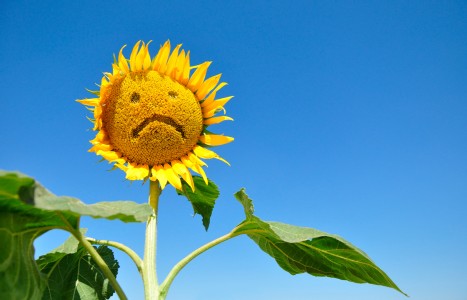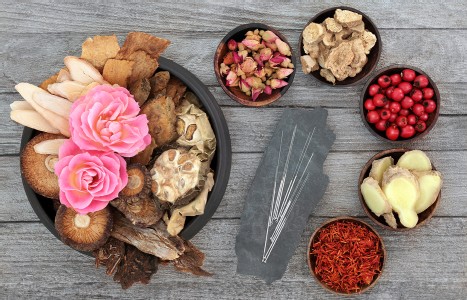Did any of you ever get the feeling in school that it simply was not OK to speak about wanting to be successful? To get into the nitty gritty details of how to make money in practice? Maybe you were even someone like me who was directly told by someone in a position of power that I needed to take what I could get because in private practice, I wouldn’t make money.
Performance-Enhancing Herbs
Those of you who work with triathletes know their mantra: Further, faster, more efficient. Many athletes take herbs to enhance endurance (running, swimming, biking or cross-country skiing), induce muscular hypertrophy and strength (weight lifting, strength sports) or enhance overall performance.1 Such substances have been used for millennia to provide athletes a competitive edge. What is the latest research that supports or refutes the performance benefits of herbal medicine? Moreover, how can we make safe, effective recommendations to our patients who aspire to greater athletic achievement?
GINSENG
Asian ginseng or Panax ginseng (dong yang shen) is available in a number of forms: whole root, powder (white ginseng), steamed powder (red ginseng), teas, tinctures and standardized root extracts.2 Traditionally a qi tonic, ginseng is typically used in formulas that treat any kind of deficiency. Specifically, it tonifies yuan qi and lung qi, strengthens the spleen and tonifies the stomach, benefits yin and heart qi, and calms shen. Ginseng contains 13+ glycosylated steroidal triterpene saponins (ginsenosides) as active ingredients to improve health, vitality and longevity, especially in seniors. It is considered an adaptogen and has beneficial effects on the central nervous system (CNS), and adrenal and sexual function, has anti-fatigue properties, and is known to accelerate metabolism.3
Ginseng not only has an immuno-enhancing effect, but can stimulate nitric oxide production in immune cells, arteries, vascular endothelial cells and erectile tissues.4 Studies have demonstrated statistically relevant improvement in aerobic capacity, heart rate, maximal breathing capacity, forced expiration volume, maximum expiratory flow and reduced lactate production over a nine to 12 week period.5,6 Unfortunately, the literature shows mixed results, and some research suggests little to no benefits to physical or mental performance.7-9 Study design, dosage and frequency, and length of study all impact results. Standardization is a problem because the supplement industry is not required to prove their product contains what is specified on the label.
Based on the data collected, ginseng supplementation would be beneficial to those who are involved in a sport that relies on quick thinking and rapid reactions, as well as activities with strong cardiovascular demands. This appears to be valid for those athletes who are middle-aged and older, while less improvement is seen in younger athletes. The common dosage is 3-9 g per day of powdered root.10 However, other sources suggest 1-2 g/day.
Ginseng has a long tradition of use and studies have shown it to be quite safe. There are no contraindications (except for those suffering from hypertension, based on its stimulatory action). Avoid prolonged use exceeding three months. Two months of use and one month off is an acceptable cycle. People prone to hypoglycemia may be slightly reactive to a ginseng preparation because it reduces blood sugar. Interactions with phenelzine have resulted in headache, tremor and mania. There is speculation that ginseng interacts with monoamine oxidase inhibitors, but more evaluation is necessary.11 Siberian Ginseng (ci wu jia) is a distant cousin of Panax, containing steroidal saponins called eleutherosides that are molecularly similar.12 Russian scientists have performed considerable research, which included 60,000 factory workers, 35 weight lifters and wrestlers, and 36 gymnasts.13 The results indicated improved muscular strength, resistance to fatigue and greater recovery. No details were provided, so these studies have marginal credibility. Romanian researchers gave 30 athletes 1 g of ginseng powder per day for six weeks in a randomized, double-blind, placebo-controlled crossover study and demonstrated a 13 percent increase in pectoral strength and a 15 percent gain in quadriceps strength.14 However, VO2 max, heart rate recovery from exercise, and grip strength were not changed significantly compared to the placebo group. Another study administered 3.4 ml eleutherococcus extract for six weeks to long-distance runners. There was no statistically significant effect on a number of performance parameters. Based on the limited data in the literature, Siberian ginseng does not seem to be helpful to endurance athletes, but may be useful for weight training and strength-related activities. Dosage is 1-2 g per day of the powdered root. The safety and contraindications of Siberian ginseng are the same as the Panax variety, however only Panax was studied as having interactions with phenelzine.
SCHISANDRA
Schisandra (wu wei zi), classified as an adaptogen, is used to treat respiratory conditions, frequent urination, night sweats, insomnia and diabetes. The energetics astringe lung qi and calm shen. Limited studies suggest it not only has a positive effect on athletic performance, but also on recovery.15 Quite a bit of information on schisandra’s effect on the CNS has been published, particularly regarding its ability to combat stress. What’s interesting is that schisandra produces stimulation of the CNS, increasing mental alertness, motor coordination and efficiency, but does not elicit an excitatory response the way amphetamines or caffeine does.16,17 It also has been shown to have hepato-protective properties. Dosage is 1-6 g per day.
Adverse reactions include heartburn, dizziness, diarrhea, nausea, anorexia, skin rash and urticaria, and abdominal discomfort. Symptoms of overdose include restlessness, insomnia and dyspnea. It is contraindicated for those who are pregnant or breastfeeding; have gastroesophogeal reflux disease; suffer from peptic ulcers; have epilepsy; or have increased intracranial pressure. It may increase the speed at which the liver breaks down drugs, thus decreasing effectiveness. These would include celecoxib (Celebrex), diclofenac (Voltaren), fluvastatin (Lescol), glipizide (Glucotrol), ibuprofen, irbesartan (Avapro), losartan (Cozaar), phenytoin (Dilantin), piroxicam (Feldene), tamoxifen (Nolvadex), tolbutamide (Tolinase), torsemide (Demadex) and warfarin (Coumadin).
CORDYCEPS
Cordyceps sinensis (dong chong xia cao) has been used for longevity and tonifies lung and kidney. As an adaptogen, it "strengthens the adrenal glands, increases sexual vitality, relieves bronchitis and emphysema, reduces blood fats and sugars, lowers blood pressure, and improves blood circulation."18 The active compounds include amino acids, steric acid, D-mannitol, mycose, ergosterol, uracil, adrenine, adenosine, palmitic acid, cholesterol palmitate, and 5a-8a-epidioxy-5a-ergosta-6,22-dien-3b-ol.19
There are few research citations specifically addressing cordyceps as performance enhancer. Those that do exist are contradictory. One study involved 22 male cyclists taking 3 g/day for five weeks.20 A number of parameters were measured, such as VO2 peak and ventilatory threshold. Time trial measurements did not vary with the placebo group, nor did any of the measured parameters. It was concluded that "five weeks of CordyMax Cs-4 supplementation has no effect on aerobic capacity or endurance exercise performance in endurance-trained male cyclists."
A Japanese double-blind study measured the benefits of cordyceps on 10 healthy male runners.21 The subjects ingested 240 mg of pure cordyceps drink and their cardiovascular/respiratory responses to exercise exertion were significantly more efficient than those on a placebo drink. Additionally, scientists evaluated cordyceps (Cs-4) on 20 healthy volunteers ages 50-75 years.22 The subjects were taking 333 mg three times per day for 12 weeks and underwent respiratory evaluation. The study found a 10.5 percent increase in metabolic threshold (above which lactate accumulates) and an 8.5 percent increase in ventilatory threshold. There was no change in VO2 max between the Cs-4 and placebo groups. Doses of 2-4 g per day provide clinically meaningful benefits in most studies. Dietary supplementation of cordyceps is not associated with any significant side effects or toxicity. Since cordyceps contain adenosine, there is a slight chance of blood thinning.
WATER
Prevention of dehydration should be paramount in any season, but summer is most critical. The rule of thumb is to drink at least half your weight in ounces of purified water per day. Athletes doing activities during warm weather need to drink one to two cups of water or sports drink every 15-30 minutes. The goal should be not to lose more than 2 percent of body weight during exercise. Frequent ingestion of water is one of the easiest and most effective performance aids. Studies have shown hydration during exercise in a hot/humid environment can improve endurance-exercise capacity.23
References
- Bucci L. Selected herbals and human exercise performance. Am J Clin Nutr 2000:72(suppl)624S.
- McGuffin M, Hobbs C, Upton R, Goldberg A, eds. Botanical Safety Handbook. Boca Raton, Fla.: CRC Press, 1997.
- Talbott S, Hughes K. The Health Professional’s Guide To Dietary Supplements. Philadelphia: Lippincott Williams & Wilkins, 2007.
- Bucci L. Selected herbals and human exercise performance. Am J Clin Nutr 2000:72(suppl)625S.
- Forgo I, Kirchdorfer A. (On the question of influencing the performance of top sportsmen by means of biologically active substances.) Arztl Prax 1981;33:1784-91 (in German).
- Forgo I, Kayasseh L, Straub J. (Effect of a standardized ginseng extract on general well-being, reaction time, lung function and gonadal hormones.) Med Welt 1981;32:751-6 (in German).
- Knapik J, Wright J, Welch M, et al. The influence of Panax ginseng on indices of substrate utilization during repeated, exhaustive exercise in man. Fed Proc 1983;42:336.
- Teves M, Wright J, Welch M, et al. Effects of ginseng on repeated bouts of exhaustive exercise. Med Sci Sports Exer 1983;15:162.
- Bahrke M, Morgan W. Evaluation of the ergogenic properties of ginseng: an update. Sports Med 2000;29(2):113-33.
- Hobbs C. The Ginsengs. A User’s Guide. Santa Cruz, Calif.: Botanica Press, 1996.
- Fugh-Berman A. Herb-drug interactions. Lancet 2000;355:134-8.
- Brekhman II, Dardymov IV. New substances of plant origin which increase nonspecific resistance. Annu Rev Pharmacol 1969;9:419-30.
- Bucci L. Selected herbals and human exercise performance. Am J Clin Nutr 2000;72(suppl):625S.
- McNaughton L, Egan G, Caelli G. A comparison of Chinese and Russian ginseng as ergogenic aids to improve various facets of physical fitness. Int Clin Nutr Rev 1989;90:32-5.
- Weiner M. Herbs That Heal: Prescription for Herbal Healing. Atrium Publishers, 1996, pp.292-3.
- Ahumada F, Hermosilla J, Hola R, et al. Studies on the effect of Schizandra Chinensis extract on horses submitted to exercise and maximum effort. Phytotherapy 1989;3(5):175-9.
- Lebedev A. Appraisal Of the Stimulative Action of Schizandra Chinensis. Moscow: Academy of Science of the USSR, 1955, pp. 182-5.
- Howard J. Potential of fungi used in Chinese traditional remedies: the caterpillar fungus (Cordyceps chinensis).
- Lu R, Yang YC, Yue DC, et al. Chemical composition of the submerged culture of Cordyceps sp. No 1. Weishengwuxue Tongbao 1982;9:166-8.
- Parcell A, Smith JM, Schulthies SS, et al. Cordyceps Sinensis (CordyMax Cs-4) supplementation does not improve endurance exercise performance. Int J Sport Nutr Exerc Metab 2004;14(2):236-42.
- Nagata A, Tajima T. Anti-fatigue effectiveness of Cordyceps Sinensis extract by the double blind method. Hiro to Kyuyo no Kagaku 2000;17(1):89-97.
- Chen S, et al. Effect of Cs-4 (Cordyceps sinensis) on exercise performance in healthy older subjects: a double-blind, placebo-controlled trial. J Altern Complement Med 2010;16(5):585-90.
- Von Duvillard S, Braun WA, Markofski M, et al. Fluids and hydration in prolonged endurance performance. Nutrition 2004;20:651-6.


